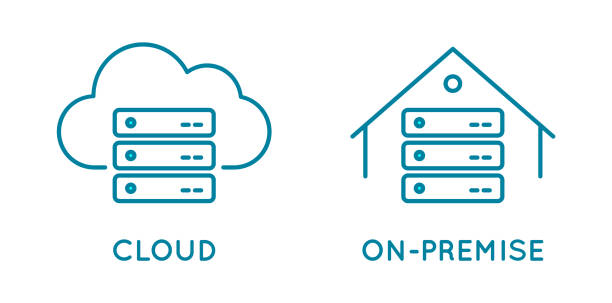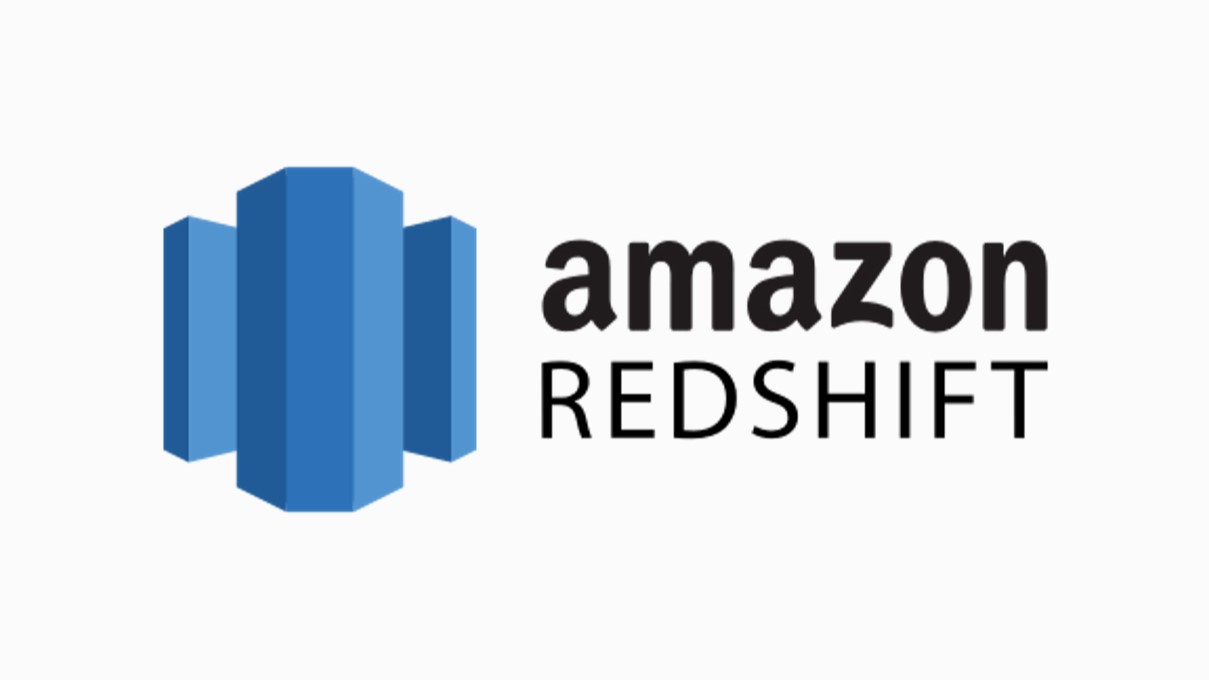For decades, companies have relied on data warehouses as the core of business intelligence (BI) and data analytics, providing an effective way to store, protect, and amalgamate large quantities of data.
However, as the generation and use of data grow at booming rates, traditional (on-premise) data warehouse models have struggled to keep up. So, what’s the solution?
Introducing the cloud data warehouse!
Cloud data warehouses were launched by providers to meet the current and future needs of modern enterprises. They offer a managed software service in which companies can store large amounts of data in a public cloud across a multi-server platform.
And what’s more, unlike older models, they don’t require purchasing physical hardware!
But what are the key features of this service, and who’s providing it? Read more to find out!
What is a Cloud Data Warehouse?
A cloud data warehouse is a type of data storage and management system that allows organisations to store and analyse large amounts of data in a single source of truth (SSOT), as well as do it in the cloud.
These systems are designed to handle the storage and processing of big data, which is characterised by the three Vs—high volume, velocity, and variety. In addition, they allow organisations to store and analyse data from various sources, such as social media platforms, Looker Studio and Google Ads, to gain insights and make data-driven decisions.
A cloud data warehouse is built on top of cloud infrastructure, including top vendors Google BigQuery, Amazon RedShift and Snowflake. This means that it can be accessed over the internet and that the underlying infrastructure is managed by a cloud provider. The provider takes care of the technical tasks like scaling, backups, and security, so that businesses can focus on strategy.
Overall, cloud data warehouses are a powerful tool that offers modern enterprises many benefits including scalability, accessibility and cost-effectiveness.

Top 7 Benefits of Using a Cloud Data Warehouse
So far, cloud data warehouses sound promising! But let’s read about their top benefits and find out why they are the preferred choice today!
#1. Increased Availability
Increased availability is one of the key benefits of using a cloud data warehouse.
Typically, cloud data warehouse providers offer 99.9% (also known as “three nines”) availability. To put this into context, that amounts to just under nine hours of downtime in an entire year, providing a highly available environment to conduct BI.
#2. Reduced costs
As mentioned, the cloud data warehouse is a software service that is managed externally and doesn’t require purchasing any physical hardware.
This is hugely beneficial for modern businesses, as it means they no longer have to pay up front for the large amounts of equipment required by older, on-premise data warehouse models. On top of that, they also won’t have to pay for the office space and staff needed to maintain and monitor it.
#3. Simplified Scalability
Another major benefit of using cloud data warehouse solutions is their simplified scalability. They’re highly scalable, meaning that they can grow and shrink as needed to meet the changing needs of your agency. This makes them a good option for those who expect their data storage and processing needs to grow over time, which, let’s face it, is everyone!

#4. Improved Performance
As data volume and complexity grow, it can become challenging to ensure that queries and data processing tasks run efficiently.
The cloud makes data analytics faster and more efficient than ever before. For example, using features like parallel processing optimises pace, performance and cost effectiveness, allowing several different departments to process data and draw insights at the same time.
#5. Increased Security
As the use of data grows, modern enterprises often deal with high quantities of confidential or sensitive data. Cloud data warehouse providers employ many measures to ensure stored information is safe. This includes storage encryption, multi-factor authentication, disaster recovery, and following strict compliance guidelines.
#6. Ease of Setup and Use
It almost goes without saying, but another advantage of cloud data warehouses is the ease and simplicity they offer users.
The setup process is quick and straightforward thanks to external management and the lack of physical hardware installation on the client side. Moreover, providers also compete to design a solution that makes for the most user-friendly solution possible!
#7. Access From Anywhere
Many companies now pride themselves on flexibility, remote, and hybrid working, with many opening offices overseas.
Therefore, it’s important to have the technology that can keep up with the ever-changing workforce climate! Cloud data warehouses can be accessed from anywhere, which makes them the best option for modern company structures.
On-Premise vs. Cloud Data Warehouse
So, to put the benefits into context, let’s look at the key factors that differentiate cloud data warehouses from traditional on-premise data warehouses:
- Cost. Using a cloud data warehouse will cut the costs of buying expensive physical hardware, office space, and employees needed to oversee the server. These costs are unavoidable when using on-premise data warehouses.
- Scalability. A cloud data warehouse can easily scale up and down according to company needs. On-premise data warehouses, to the contrary, may require purchasing and installing new hardware to hold larger quantities of data, taking additional time and maintenance!
- Security. On-premise data warehouses require the company to deploy, oversee and manage its own sensitive information. Cloud providers are responsible for the security of a company’s data and have systems in place, such as user authentication and data encryption, to ensure the safety of sensitive information.
- Availability. An on-premise data warehouse will typically have lower availability than a cloud data warehouse, as it depends on the enterprise’s own hardware and infrastructure. This includes things like power, cooling, network and maintenance. So, in the case of a failure, hardware replacement and maintenance may require more time and resources than in a cloud data warehouse scenario, where the provider will take care of it and ensure 99.9% availability in most cases.

3 Cloud Data Warehouse Vendors
There are many cloud data warehouse providers appearing on the market to match the unprecedented rates of data growth and analytics. Here are some of our top cloud data warehouse examples!
Google BigQuery

Google BigQuery is an industry leader operating on Google’s vast infrastructure. It can process massive amounts of data and easily transfer it to multiple visualisation platforms commonly used by enterprises, such as Microsoft BI and Looker Studio.
Contrary to the three-nines typically promised by cloud data warehouses, BigQuery offers a staggering 99.99% availability. To put this in context, that’s just 60 minutes of downtime a year in comparison to the 9 hours of unavailability common to cloud data warehouse systems.
Amazon RedShift

Amazon RedShift is one of the first ever cloud-based data warehouse solutions. It was created almost a decade ago and can be seen as a game-changer in the data warehouse market. Redshift uses the SQL dialect, which is widely recognised and understood and operates similarly to traditional on-premise architectures.
However, though there are obvious benefits to Redshift, operating on an older model means that it can’t be managed 100% externally, and a tech team may be needed on-site.
Snowflake

Snowflake is another highly popular cloud data warehouse tool currently on the market. It requires no management or infrastructure, making it a great low-maintenance solution to an enterprise’s needs. So essentially, it’s quick, flexible, and extremely user-friendly!
Check out the table below for more details on each of the three cloud data warehouse vendors:
| Google BigQuery | Amazon RedShift | Snowflake |
| On-demand or flat-rate pricing Serverless architecture Mass storage capacity Can query billions of data rows quickly and efficiently | On-demand, by-the-hour pricing Shared-nothing architecture Uses the highly recognised SQL dialect Similar to traditional models so easier to understand Still requires on-premise hardware and maintenance | Pre-purchased usage based, on demand-per minute pricing Hybrid architecture Simple to use High scalability |
Factors to Consider When Choosing a Cloud Data Warehousing Solution
As data usage and collection continue to grow, so does the cloud data warehouse market. We encourage you to consider three key factors when shopping for your agency’s best data management solution, such as:
- Cost. The cost of cloud data warehouses can vary depending on what exactly the service offers and who is providing it. But it’s important to note that an absolutely key feature of cloud-based solutions is that you only pay for the resources you use and you can pay-as-you-go, or in other words—pay as you grow!
- Architecture. Cloud data warehouse architecture can vary depending on the specific provider and the organisation’s needs. There are a variety of cloud data warehouse architectures, each with its own pros and cons. Therefore it is important to be aware of your agency’s exact needs and decide what the best architecture is to support that.
- Management. Cloud-data warehouses work by outsourcing the hassle of system management. Essentially, an adequate cloud data warehouse solution should take the pressure off your business and allow you to focus on growth whilst your provider works on the tools to make that easier for you. So, in other words: choosing a trusted provider is extremely important!
Cloud Data Warehouse Automation
Data warehouse automation is essentially the process of automating the planning, modelling, and amalgamation stages of data collection, which have traditionally been carried out manually. This works to standardise company measures and increase the productivity and endurance of its users.
Here at Acuto, we achieve automation by using automation scripts to set up and transform data as it loads into the cloud. We can then schedule this process to take place at specified intervals, daily, weekly, etc. Regular monitoring takes place to troubleshoot any problems that arrive, and, lastly, we manage the stored data by organising and categorising for easy analysis.

Challenges of Using a Cloud Data Warehouse
Here are some of the downsides and challenges people face when using cloud data warehouse:
- Lack of governance. Though providers have made huge progress in cloud data security, lack of internal governance may lead businesses to feel like they have a lack of control over their data processing.
- Security. Linking back to governance, agencies may be worried about compliance breaches which are out of their control. Also it’s worth a mention that as the cloud is completely dependent on the internet, and if it experiences issues, important information may be lost.
- Skills shortages. A host of new skillsets are required to keep up with the influx of ever changing structures and technologies in the cloud data warehouse market. It may prove hard finding people and staff who understand how the systems work.
How to Successfully Implement a Cloud Data Warehousing Solution
Is your company struggling with data silos and having to process huge amounts of information that often feels muddled and difficult to organise effectively? Acuto is here to help!
We know that every enterprise has its own unique needs, structure and strategy, with data spread across a range of platforms to reach the necessary targets. But what if you could organise all of this data into one warehouse in a managed and cost-effective way?
Using Google BigQuery, we offer cloud data warehousing services, tailored to your company’s exact needs!
We have a dedicated team of cloud engineers and developers with a PPC background committed to creating a service that allows you to focus on the important stuff. Meanwhile, we’ll figure out the quickest and most efficient way to get you there!
Gone are the days when it was too expensive for smaller agencies to purchase custom tools. We’re here to let you know that technology has changed the game. And what’s more—you own every last bit!
Interested? Get in touch to learn more!
Key Takeaways
Cloud data warehouses have proven to be the most effective solution for marketing agencies thanks to the fully managed services that come with them. Moreover, they are an ideal solution for agencies to store all their data in and keep up with the competition.
Let’s recap what we covered in this article:
- Cloud data warehouse’s are a new and updated solution to data storage and management, offering a service that centralises data into a single serverless cloud.
- There are many benefits to using the cloud as a data storage solution, such as reduced costs, increased stability, improved performance, etc.
- There are some risks associated with using cloud data warehouses, but providers are working hard to combat these worries by putting robust security systems in place.
- When looking for a cloud data warehouse solution that suits your company’s needs, consider its management, costs, and architecture.
Cloud Data Warehouse FAQ
#1. What is the difference between an on-premise and a cloud data warehouse?
On-premise data warehouses use locally installed physical hardware, which must be managed and maintained by the company that purchased it. Cloud-data warehouses are offered as a software service that centralises into one hardware-free hub, the cloud!
#2. How much does a cloud data warehouse cost?
Cloud data warehouses vary in cost. However, it is a given that any cloud data warehouse operates on a pay-as-you-go basis. Therefore, you are required to pay no more or less than the amount of resources you are using.
#3. Is Google BigQuery a cloud data warehouse?
Yes. Google BigQuery is a cloud data warehouse and the best pick for enterprises due to its 99.99% availability and massive storage capacity, amongst other great features.
#4. What are the risks of using a cloud data warehouse?
Some challenges have been identified in using cloud data warehouses, such as a lack of governance and security and a possible lack of professionals with the necessary skills in agencies using them.
